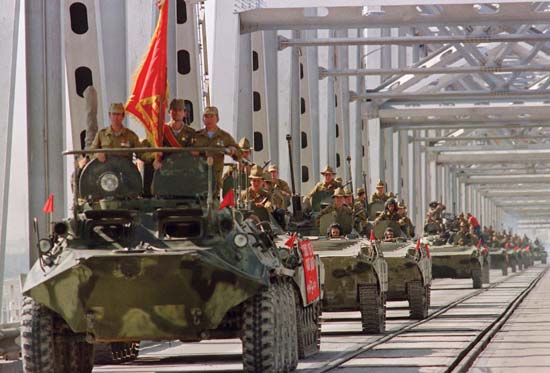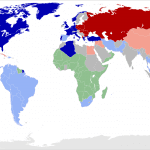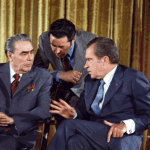The following article on the Russian-Afghan War is an excerpt from Lee Edwards and Elizabeth Edwards Spalding’s book A Brief History of the Cold War It is available to order now at Amazon and Barnes & Noble.
After a string of notable foreign policy successes by supporting communist uprisings in such places as Nicaragua , the Soviets were about to encounter an unexpected setback.
In October 1979, Hafizulah Amin, a formerly reliable communist politician, engineered a coup in Afghanistan, ousting his pro-Moscow rival and provoking the Kremlin to intervene and establish a pro-Soviet government. On December 27, 1979, Soviet special forces killed Amin and replaced him with a Soviet puppet. The Soviet Union found itself directly involved in an Afghan civil war, leading to the Russian-Afghan War.
The toll of the Russian-Afghan War on the Soviet Union
By the time the chastened Soviets withdrew in February 1989, they had suffered 13,826 dead and 49,985 wounded. Afghanistan was the Soviet Union’s Vietnam, a quagmire from which it could not extricate itself for nearly a decade.
Admitting after the Soviet invasion of Afghanistan that he had learned more about communism in one week than he had in a lifetime, Carter initiated a series of antiSoviet actions. He justified his new hard-line policy by exaggerating Moscow’s entry into Afghanistan as “the greatest threat to peace since the Second World War.” He withdrew the SALT II treaty from Senate consideration. He embargoed grain imports to the Soviet Union. He announced that the United States would boycott the 1980 Olympics in Moscow. But he still insisted that he supported détente, puzzling U.S. foreign policy experts and causing the Soviets to wonder what he meant.
In January 1980 the president suddenly proclaimed the Carter Doctrine: any attempt by an outside power to gain control of the Persian Gulf would be regarded as a “direct assault on the vital interests of the United States,” to be repelled “by any means necessary, including military force.” As one historian wrote, reports of the demise of containment “had been somewhat exaggerated.”
Having entered the White House with a grand strategy to transcend long-held American fears about communism and to end the Cold War, President Carter was caught up in what he called Soviet “expansionism.” Defeated in the election of 1980 by the conservative Ronald Reagan, Carter left office with Soviet-American relations at their lowest ebb in a decade and the Cold War seemingly fated to last for years to come.
This article is part of our larger collection of resources on the Cold War. For a comprehensive outline of the origins, key events, and conclusion of the Cold War, click here.
 |
This article on the Russian-Afghan war is an excerpt from Lee Edwards and Elizabeth Edwards Spalding’s book A Brief History of the Cold War. It is available to order now at Amazon and Barnes & Noble.
You can also buy the book by clicking on the buttons to the left.
Cite This Article
"Russian-Afghan War: A Soviet Quagmire" History on the Net© 2000-2024, Salem Media.
April 24, 2024 <https://www.historyonthenet.com/russian-afghan-war-soviet-quagmire>
More Citation Information.









